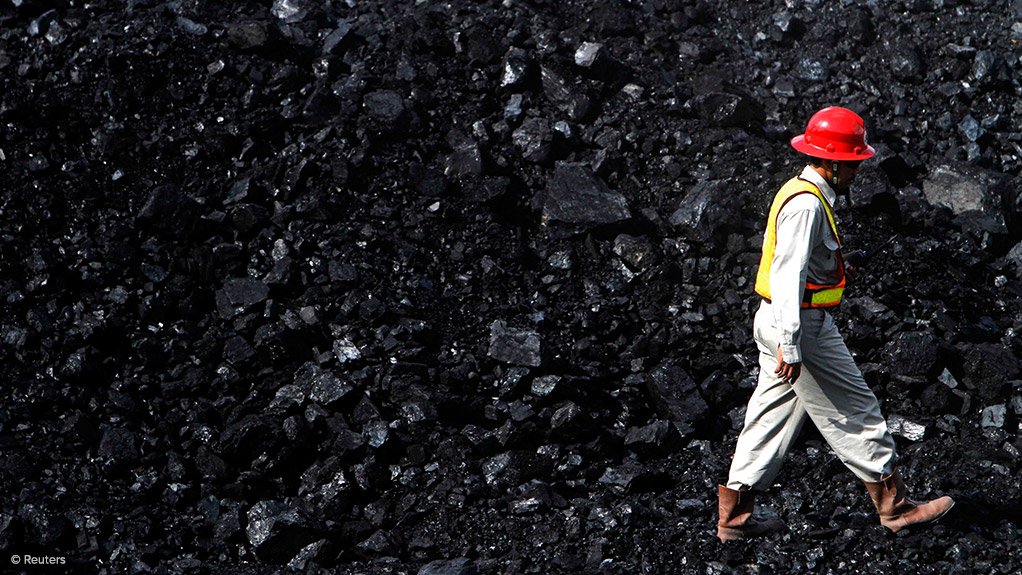
Photo by: Reuters
KOLKATA (miningweekly.com) - India’s rising coal production might be causing an oversupply problem on the demand side but on the flipside it spells a bonanza for the government carbon tax kitty or the now re-named 'Clean Environment Cess'.
Over the past two years, the government had thrice revised upward the tax on coal to the present level of $6/t and rising coal production would ensure that the government’s kitty swelled to around $5-billion during 2016/17, beating the total cumulative collections over the last five years.
According to a Coal Ministry official, government, while hiking the levy for the third time in the national budget placed before Parliament, last month, had estimated the collection at $3.99-billion, but rising coal production would clearly push up tax collection to $5-billion.
It was also distinctly possible that government’s tax collection would exceed $6-billion in 2017/18, if the current double-digit growth in coal production was maintained, the official added.
Pointing out that the Coal Minister had clearly not ruled out further increases in the Clean Environment Cess, the government’s collection could “well beat all current projections too”, the official said.
The Coal Ministry’s projections of rising revenue collections from the tax were based on Coal India Limited’s production of 600-million tonnes, next year, 50-million tonnes by Singareni Collieries Company Limited and total domestic coal consumption of 800-million tonnes during 2016/17.
The federal government transfers part of the tax collected to the National Clean Energy Fund, which was used to fund large clean energy projects, including renewable-energy producers and the National Action Plan for Climate Change.
However, the levy hike was facing opposition from within the government with the Mines Ministry communicating to the Finance Ministry that it favoured maintaining the tax at the previous level of $3/t to avoid burdening the already distressed steel and aluminium companies.
The Ministry, seeking that higher taxes be kept in abeyance for at least another year, pointed out that the present was an inopportune time to burden domestic metal companies when they were facing stiff competition from cheap Chinese imports, a government official said.